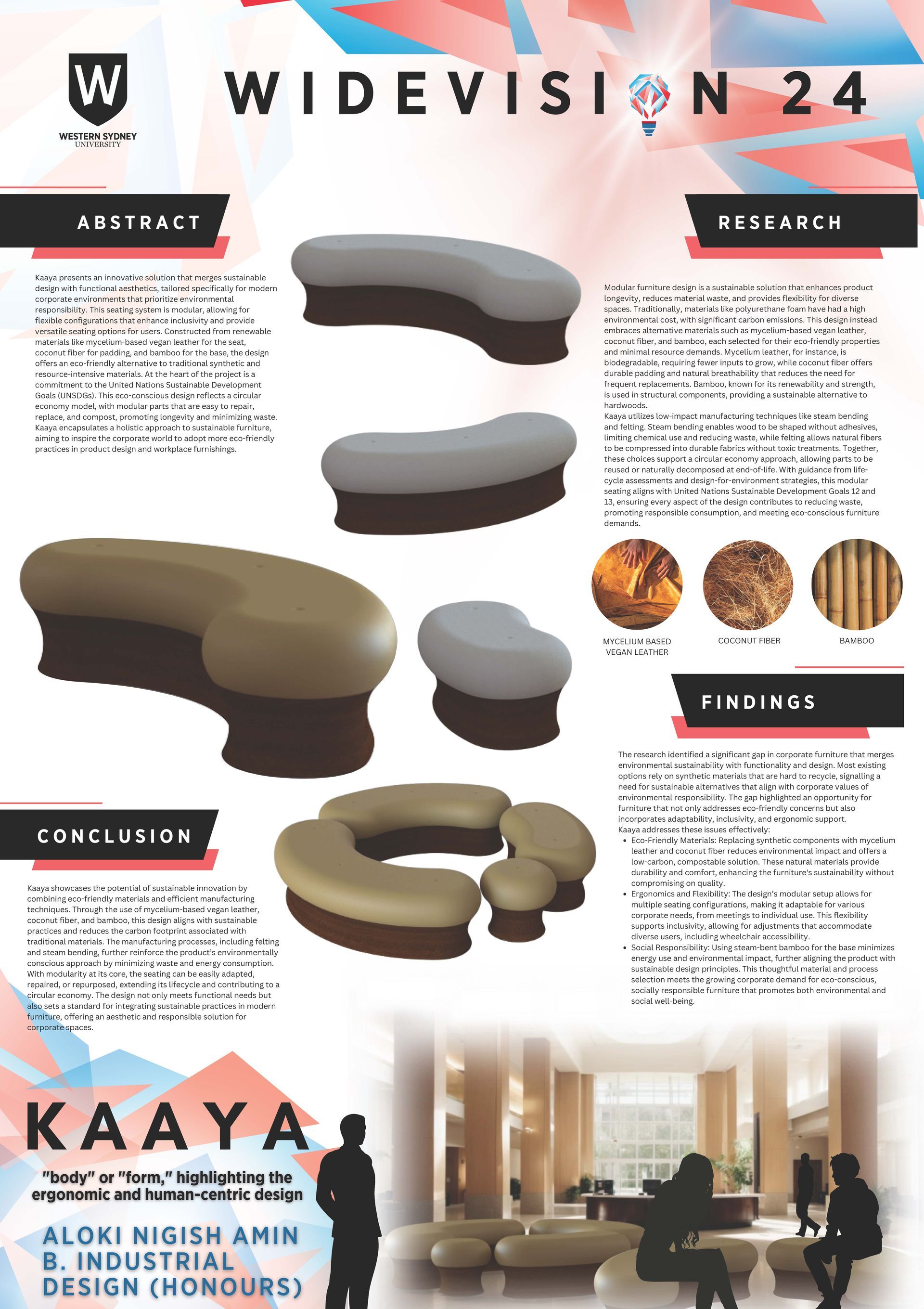Aloki Nigish Amin
Kaaya - The Modular Lounge
PROJECT
Kaaya, meaning "body" or "form," embodies an ergonomic and human-centric approach to modular seating design. Inspired by the organic shapes and structures of mushrooms, this innovative seating solution integrates sustainability, functionality, and aesthetics, creating a harmonious environment in corporate spaces.
The design features a low mushroom shape that promotes comfort and inclusivity, allowing users to engage naturally in corporate settings. With its pod-like structure, Kaaya offers versatile configurations that cater to different group dynamics, whether for informal meetings or casual social interactions. The seating arrangement is designed to foster connection providing a communal space for users to share ideas and collaborate seamlessly.
Kaaya is constructed using sustainable materials, including mycelium-based vegan leather for the cushioning and bamboo for the base. These materials not only ensure durability and comfort but also align with the growing demand for environmentally friendly design solutions. The use of coconut fibre enhances the cushioning, providing a soft and inviting seating experience.
The manufacturing processes, including felting for the mycelium leather and steam bending for the bamboo base, reflect a commitment to craftsmanship and innovation. The design also incorporates flexibility, allowing the seating to be easily reconfigured to accommodate various needs, such as prams or wheelchairs, ensuring accessibility for all users.
Through its thoughtful design and sustainable materials, Kaaya exemplifies a commitment to creating products that enhance the user experience while promoting environmental consciousness. This project seeks to redefine the perception of corporate furniture, demonstrating that functionality, aesthetics, and sustainability can coexist in harmony, ultimately enriching the workspace.

With respect for Aboriginal cultural protocol and out of recognition that its campuses occupy their traditional lands, Western Sydney University acknowledges the Darug, Eora, Dharawal (also referred to as Tharawal) and Wiradjuri peoples and thanks them for their support of its work in their lands in Greater Western Sydney and beyond.
Acknowledgement of Country
Western Sydney University Copyright © 2004-2024 | ABN 53 014 069 881 | CRICOS Provider No: 00917K | TEQSA Provider ID: PRV12061 (Australian University)

